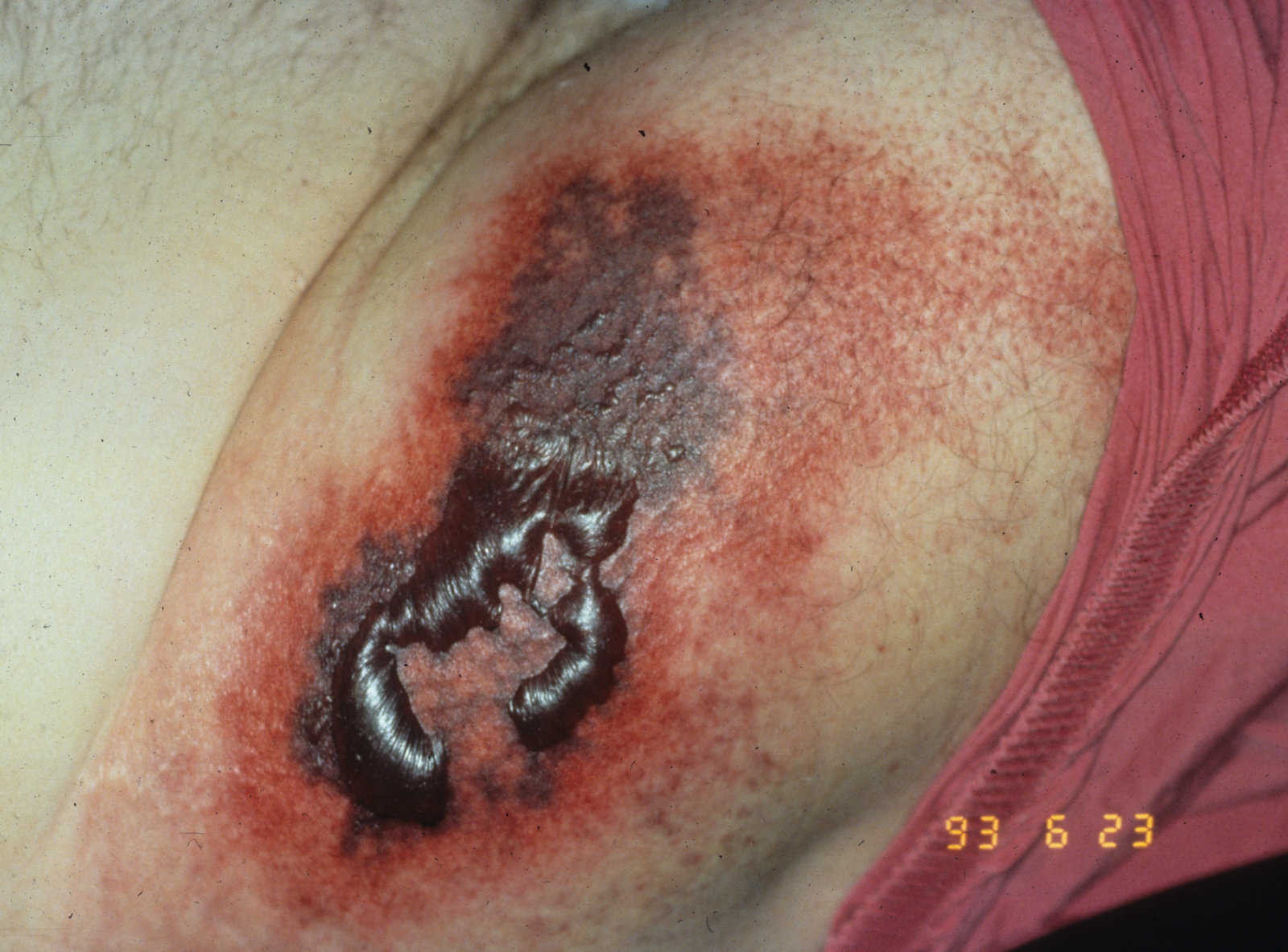The physician diagnosed the patient with Coumadin necrosis, otherwise known as warfarin-induced skin necrosis (WISN). WISN is a rare but serious adverse effect predominantly seen in obese women; it occurs between Days 3 and 6 of warfarin treatment.
WISN is more common in those with thrombophilic abnormalities who are given large loading doses of warfarin. WISN develops during the hypercoagulable state as a result of a more rapid fall in the concentration of protein C compared to the other vitamin-K-dependent procoagulant factors. Thrombophilic abnormalities such as familial or acquired deficiency of protein C or S and antiphospholipid antibodies have been implicated in WISN. WISN presents with the sudden onset of a painful localized skin lesion that is initially erythematous and/or hemorrhagic and becomes bullous. Ultimately, the lesion will become gangrenous and necrotic.
WISN is different from a warfarin bleed secondary to too much anticoagulation. WISN treatment is generally supportive and includes discontinuing the warfarin, admission to a hospital, and administration of vitamin K and fresh-frozen plasma (FFP). Since this patient was already in the hospital, she received vitamin K and some FFP and her drug reaction began to improve.
Text for Photo Rounds Friday courtesy of Richard P. Usatine, MD. Photo courtesy of Eric Kraus, MD. This case was adapted from: Allred A, Usatine R. Cutaneous drug reactions. In: Usatine R, Smith M, Mayeaux EJ, et al, eds. The Color Atlas of Family Medicine. New York, NY: McGraw-Hill; 2009:869-877.
To learn more about The Color Atlas of Family Medicine, see:
• http://www.amazon.com/Color-Atlas-Family-Medicine/dp/0071474641
You can now get The Color Atlas of Family Medicine as an app for mobile devices including the iPhone and iPad by clicking this link:


